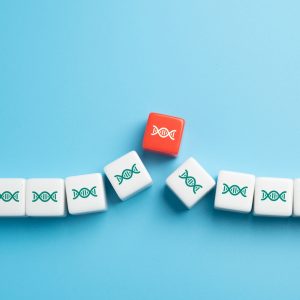
Professional Service
Patents
Patents represent a key aspect of our clients’ intellectual property and may have significant commercial value, whether used to protect core technology, keep competitors out of a particular technical/commercial space, or as a source of revenue through licencing or assignment of rights. We understand that the role of patents may vary depending on the nature and life-stage of our clients’ businesses and seek to offer practical and tailored advice.
In drafting patent applications, we seek to define your inventions in a way that offers commercially-relevant protection, provides flexibility to address any unforeseen objections arising during prosecution, and ultimately provides valuable rights that can be defended and enforced, if required.
The Schlich attorneys adopt a creative and practical approach to prosecution, and have experienced considerable success through direct interaction with EPO and UKIPO Examiners. We can also advise on effective strategies for accelerating prosecution, or deferring costs, to reflect your commercial needs. We are also able to coordinate patent prosecution worldwide, either directly through the European and International (PCT) patent systems or by working through established relationships with trusted foreign law firms.
The Schlich patent team have developed considerable experience, and a proven track record of success, in EPO opposition and appeal proceedings (both offensive and defensive). We are also able to advise on, and propose practical solutions to, potential freedom-to-operate and infringement issues.
Our Specialist Patent Attorneys
The Patent Attorneys at Schlich offer a combination of technical knowledge and broad experience in all aspects of patent drafting, prosecution, oppositions and advising on and managing contentious issues.
Recent Insights
Read the latest insights from the Schlich team reporting recent cases and updates to patent law.
Laos to become additional EPO validation state
Laos will join the five existing validation states (Morocco, Republic of Moldova, Tunisia, Cambodia, and Georgia) and the one extension state (Bosnia and Herzegovina) in which patent rights can be obtained based on a granted European patent. This means that, from April 2025, a European patent application can result in granted patents in up to […]
G1/24 versus UPC; Will There be a Tug of War Over Claim Interpretation?
Patent claim scope is not necessarily uniform between jurisdictions. However, one might expect the EPO, which grants European Patents, and the UPC, where European Patents are enforced, to have the same view of claim interpretation. However, this might not be the case.
UK High Court Confirms Requests for Arrow Declarations Based on Insufficient Disclosure Miss the Mark
The UK High Court recently refused to grant a request for an Arrow declaration based on a patent lacking sufficient disclosure. This decision indicates that Arrow declarations are to be granted in respect of specific products and processes only, not to declare that a patent application can never lead to grant of a valid patent. The decision also highlights the importance of novelty and inventive step when deciding whether to grant an Arrow declaration, and that sufficiency of disclosure is not relevant to this decision.
Is an Intervener an Opponent or Appellant, or just an Intervener?
A new referral has been made to the Enlarged Board of Appeal relating to the question of whether an appeal can continue with an intervener only, if the appellant has withdrawn.
UniQure’s Haemophilia B gene-therapy patent found valid – and infringed by Pfizer
The range of gene-therapies available to patients is ever expanding and it was only a matter of time before a conflict arose that had to be considered by the UK patent courts. Now uniQure has defended its patent for a Haemophilia B gene therapy against a revocation action brought by Pfizer.
Tales of Equivalence in the USA
In a recent decision, the Federal Circuit has confirmed it is insufficient to allege two features are equivalent for a finding of equivalence to be reached. Instead, the party alleging equivalence needs to show how the variant achieves substantially the same result, in substantially the same way, as the corresponding feature of the claim.
The Battle Between NanoString and 10x Genomics Continues with NanoString Taking the Lead Following Successful UPC Revocation Action
The latest revocation action decided on by the Munich Central Division of the UPC gives NanoString the upper hand in their ongoing dispute with 10x Genomics, while also offering a useful insight into how the UPC appear to be approaching the assessment of inventive step
UPC Court of Appeal Shifts Focus to Germany
We recently reported on the UPC’s decision to hear the Nokia v Mala case, regardless of parallel German proceedings pending for the same patent. Interestingly, the UPC Court of Appeal has reacted quickly with a different view. This update is reported here.
Get in touch

Our team of UK and European Patent Attorneys and Chartered Trade Mark Attorneys are highly knowledgeable and experienced in assisting clients with all aspects of their IP needs.
Contact us now to find out more about how we could help you and your business.















